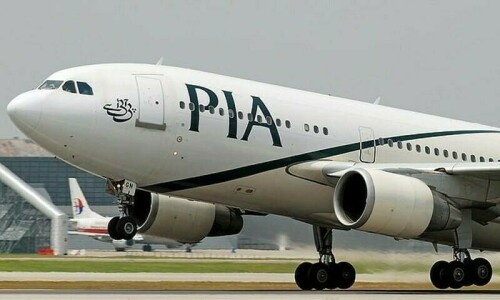Business
PIA privatization: “Investors from Saudi Arabia and Qatar are briefed by Pakistan.”
-

 Latest News3 days ago
Latest News3 days agoPTI Encouraged Chaos and Sabotage: Rana Tanveer
-

 Latest News3 days ago
Latest News3 days agoGovernment team and IMF start discussing agricultural income tax
-

 Business3 days ago
Business3 days agoWith inflation slowing, the SBP is anticipated to lower the policy rate for the eighth time in a row.
-

 Latest News3 days ago
Latest News3 days agoDY PM Talks With World Leaders About Bilateral Partnerships
-

 Latest News3 days ago
Latest News3 days agoThe government is dedicated to assisting the insurance industry: Aurangzeb
-

 Latest News3 days ago
Latest News3 days agoDPM Restates Abundant Support for the Palestinian Cause
-

 Business3 days ago
Business3 days agoE&P Companies Will Invest $5 Billion in Pakistan’s Petroleum Industry
-

 Latest News3 days ago
Latest News3 days agoNA, Senate Sessions: Tomorrow’s Meeting of Both Houses of Parliament















